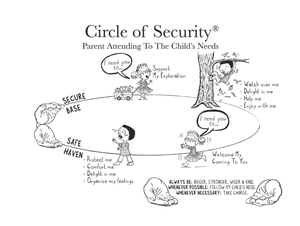How can I move my toddler’s bedtime earlier?

By the end of the day, most parents of toddlers are more than ready for a little break. Of course, toddlers are delightful, but they can also be exhausting, making bedtime such an exciting prospect for tired parents.
Sometimes parents want to bring their toddler’s bedtime earlier. This can happen for a whole range of reasons, but most frequently because there’s benefits for the toddler in having longer night time sleeps.
Tired toddlers are often irritable and become easily frustrated. Toddlers who are chronically sleep deprived don’t get through each day with the energy they need to play and interact happily with other people.
Longer, more restorative sleep, can mean the difference between a toddler who is a delight to be with, or one who is often grumpy.
When is it fair to make my toddler’s bedtime earlier?
There will be evenings when the normal time for settling your toddler needs adjustment. Sometimes this will be predictable early in the day, sometimes not. The key is to be flexible and follow your toddler’s tired cues. All of us, no matter what age, settle to sleep more easily if we’re tired and when we’re showing tired signs.
If you want to bring your toddler’s bedtime earlier, try bringing their routine a little earlier each night. A gradual transition can be easier for everyone to adjust to.
10 reasons why your toddler may need an earlier bed time
- They aren’t getting enough sleep and need more opportunity to sleep.
- They’ve missed their daytime sleep.
- They woke very early in the morning, or they woke early from their daytime sleep.
- There have been changes in the family or household and they need more sleep to help them adjust.
- They’ve had a big day or a run of big days and they’re clearly exhausted.
- They’re sick or seem to be getting sick.
- They were awake through the night. Toddlers with a ‘sleep deficit’ need to catch up on lost sleep.
- They’re going and growing through a growth spurt. Toddlers grow when they’re sleeping and restore energy.
- They just seem to run out of energy earlier than they usually do and they look and behave as if they’re not getting enough sleep.
- You’re struggling and just need some time to refresh or spend with your partner.
Toddler sleep truths
Some toddlers don’t seem to have an ‘off’ switch and become increasingly active as the sun goes down.
Research supports the benefits of toddlers having an earlier, rather than later bedtime. One study found that toddlers who are ‘night owls’ tend to be a heavier weight when followed up three years after being studied.
Overtired toddlers often have a surge of energy just as they should be winding down and relaxing. Try to limit stimulating play as you move towards your toddler’s bedtime. Quiet stories, books and cuddles are ideal.
Toddlers can be very charming and clever at giving messages of wanting to stay close to parents rather than going to bed. A little flexibility is fair and loving, but try to remember that ‘take charge’ moments are often necessary when caring for small children. Check the Circle of Security (COS) guidelines and consider enrolling in a course to understand more about emotional connection.
Toddlers who sleep late in the day will often ‘push back’ the time they go to bed at night. If your toddler is still sleeping by 4 pm, it’s reasonable to wake them up. Aim for some physically active, tiring play in the late afternoons so they have the opportunity to use up some energy.
What’s a normal bedtime for a toddler?
Most toddlers are ready for bed by around 7 pm, though getting to the actual point of them being in bed can take up to one hour or more before this time. Don’t expect your toddler to just go from being awake and active, to sleeping. Give them clear messages that it will soon be time for bed as the time gets closer.
Start your evening routine at around 5 pm. Most toddlers respond well to a routine of dinner, bath, PJs, teeth cleaning and story which ends in them being in bed by 7 o’clock.
During daylight savings hours, try to stick with your toddler’s usual bedtime. You may need to be a little flexible for the first week or so to support their transition.
5 top toddler bedtime tips
- Stay calm, clear and consistent when you settle your toddler.
- Look for your toddler’s-tired signs. Settling them to bed when they’re tired, rather than always by the clock can make for an easier sleep time transition.
- Think about what your toddler needs from you to go to sleep. If they’re always breastfed or have a bottle of milk to go to sleep, they’re likely to look for these when they wake during the night.
- Give your toddler clear, calm verbal prompts to “lie down, it’s time to go to sleep”. Try not to be too conversational with them and aim to limit stimulation.
- Plan an earlier bedtime at the start of the day when you’re more rested yourself. Knowing what time you’re working towards and making steps towards this needs to start at around 5 pm.
What’s important when it comes to my toddler’s bedtime?
Try to follow a regular, pre-settling routine. Evidence has shown that children thrive on predictability and routines which help them to feel safe and secure. Routines also help parents to manage a busy household and ensure everyone’s needs are met.
Speak with your partner about how you can give your toddler the same consistent messages around bedtime. Toddlers are wonderful at finding the weakest link in their parents’ management. Many toddlers will do almost anything they can to stay up as long as possible.
Practical ways to bring bedtime earlier
- Decide on what’s a reasonable bedtime for your toddler. Aim for around 7 pm and work backwards from then when starting your night time routine.
- Make dinner time around 5 pm. Like adults, many toddlers can find it hard to settle when they’ve just eaten.
- Use curtains or blinds if light is coming into the room. In the middle of summer, it can be hard for toddlers to understand that it’s bedtime.
- Remember, your toddler will follow your lead. If you are calm and fair and give them consistent, clear messages, they are more likely to settle to sleep when they need to.
About the Author:
Written for Safe Sleep Space by Jane Barry. Jane has qualifications in general, paediatric, immunisation, midwifery and child health nursing. She holds a Bachelor Degree in Applied Science (Nursing) and has almost 35 years specialist experience in child health nursing. She is a member of a number of professionally affiliated organisations including AHPRA, The Australasian Medical Writer’s Association and Australian College of Children and Young People’s Nurses.
References
Bedtime routines for babies & toddlers | Raising Children Network
Benefits of a bedtime routine in young children: Sleep, development, and beyond - ScienceDirect








